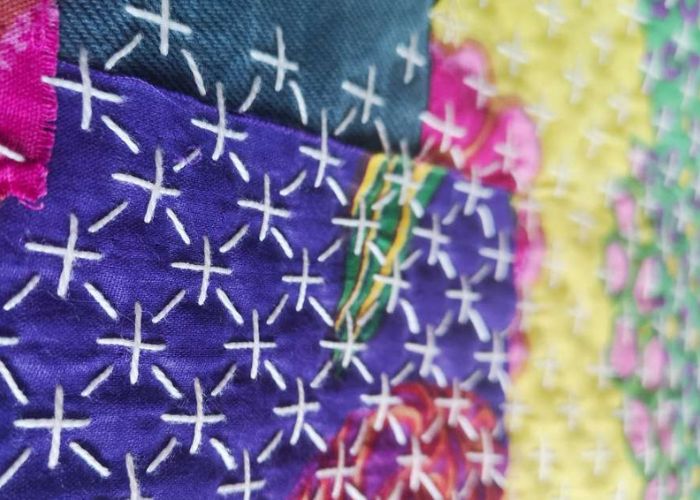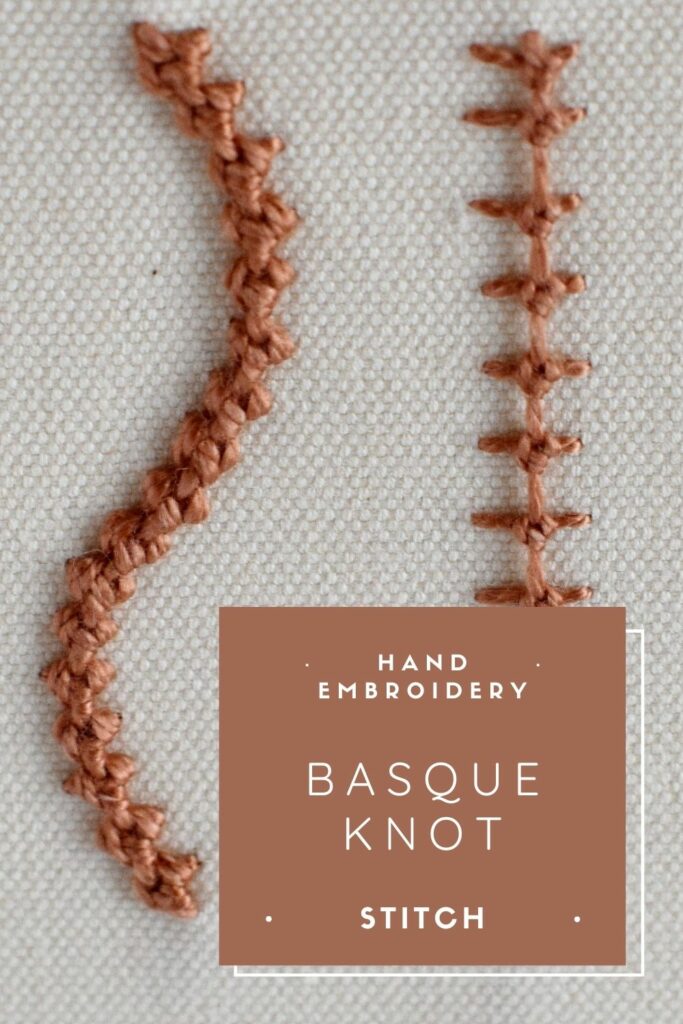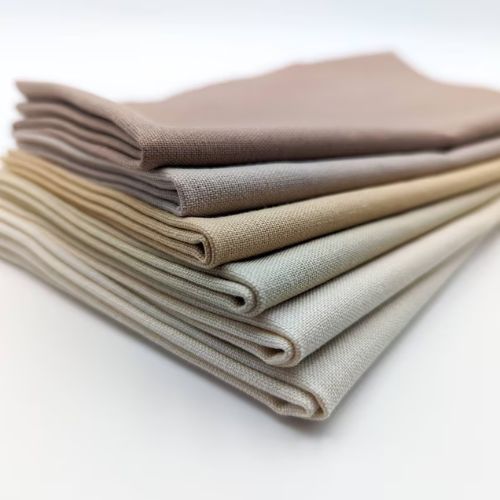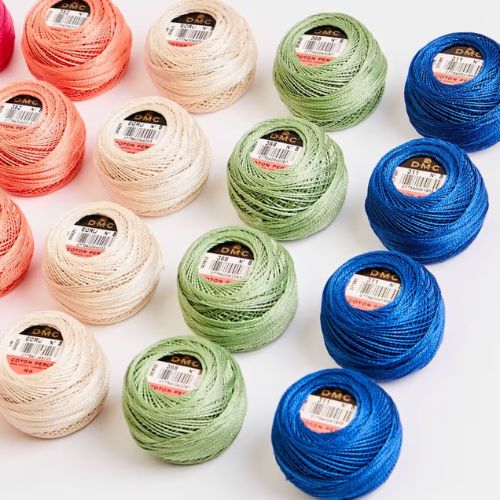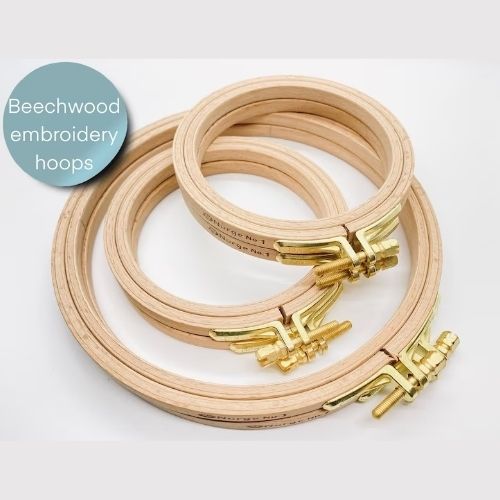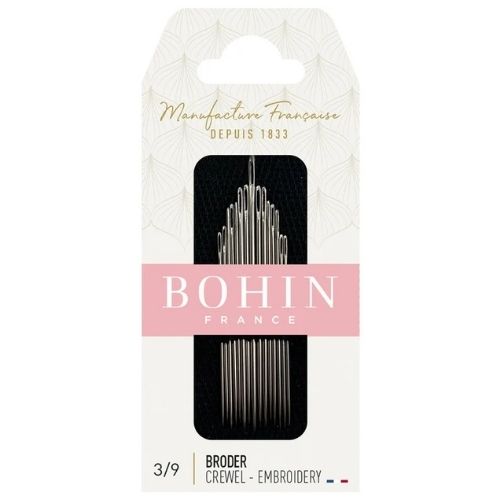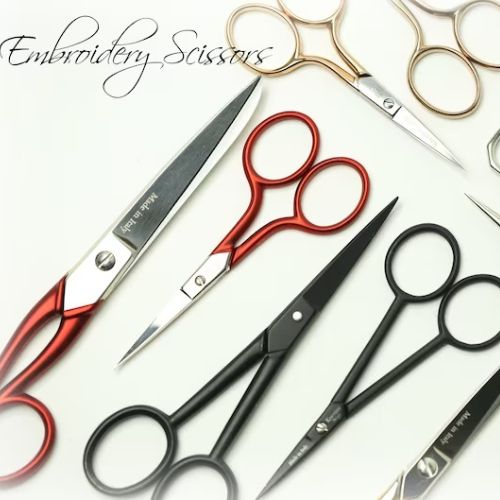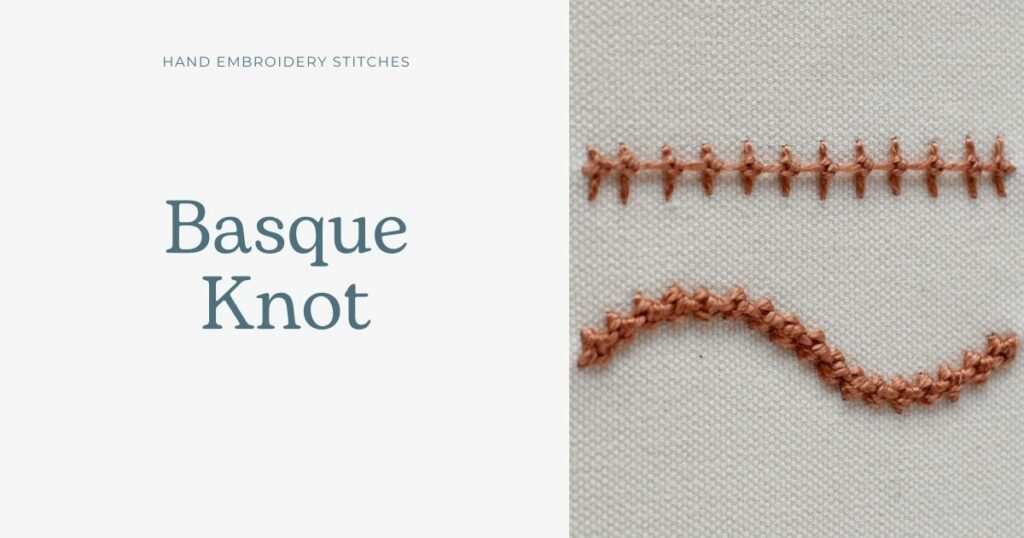
Basque Knot
Basque Knot is a decorative raised outline stitch from the Palestrina Stitch family. This hand embroidery technique creates interesting knotted bold lines that can be straight or curved.
To highlight this stitch’s characteristic knots, it is best to use thicker embroidery threads with a sturdy structure. For the upper line of my sampler, I used a single pearl cotton thread, and for the curved line, I used two pearl cotton threads held together.
On the reverse side of the fabric, this hand embroidery stitch creates a line of parallel vertical stitches.
Other names of the Basque Knot
The Basque Knot hand embroidery technique is also known as the Reverse Palestrina Stitch, Knotted Pearl Stitch, Knotted Loop Stitch, and Basque Loop Stitch.
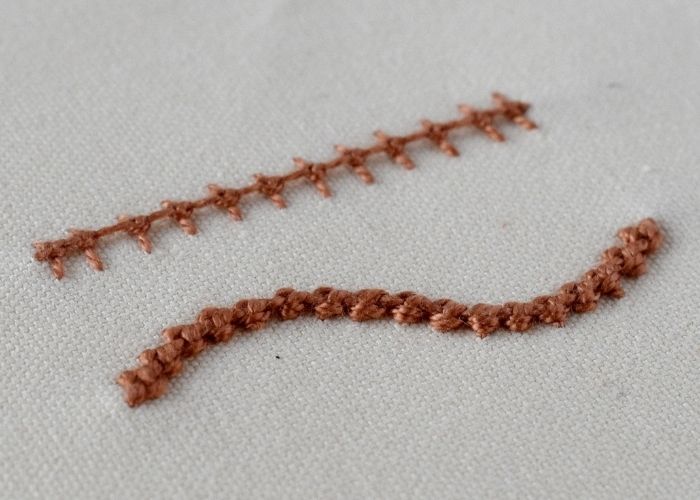
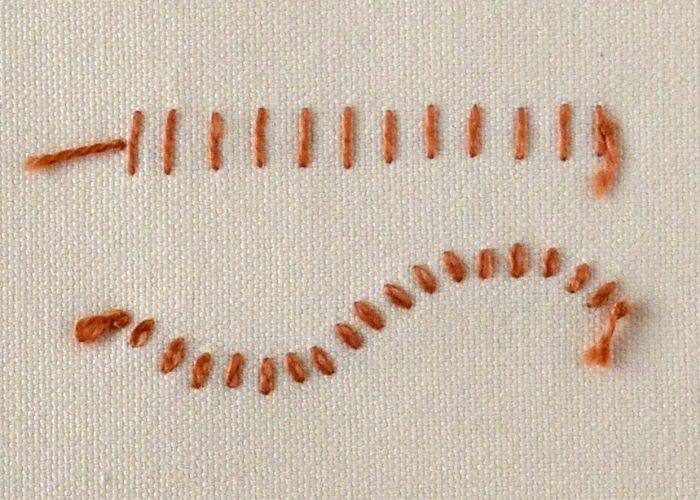
Applications of the Knotted Pearl Stitch
Basque Knot has a decorative, bold appeal and takes curves well. Therefore, it will look great if you use it for outlines, decorative borders, or lettering.
This hand embroidery technique can be used to embellish garments or household textiles. With Basque Knot, you can add decorative edging or monograms.
More stitches from the Palestrina Stitch family
- Eastern Stitch
- Sorbello Stitch
- Triple Palestrina Stitch
Learn how to embroider Basque Knot stitch
Follow the step-by-step tutorial with detailed photos below, and you will learn the Basque Knot quickly. If you are a visual learner, watch a video lesson in the tutorial or on the Practical Embroidery YouTube channel to learn this hand embroidery stitch faster.
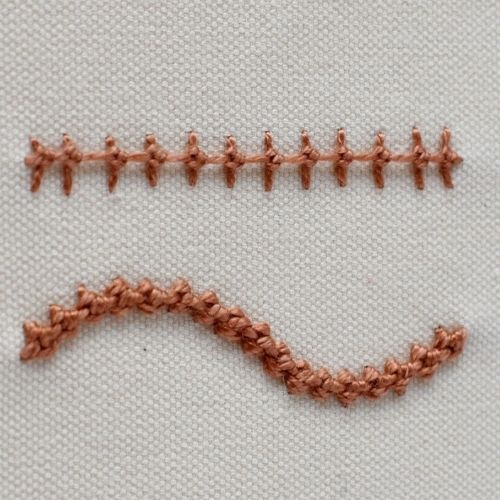
How to embroider Basque Knot
Step-by-step hand embroidery tutorial
- Make the first stitch
Mark the line for guidance. Basque Knot is worked from left to right. Take the needle up at the beginning of the marked line and make a small, slightly diagonal stitch above the marked line.
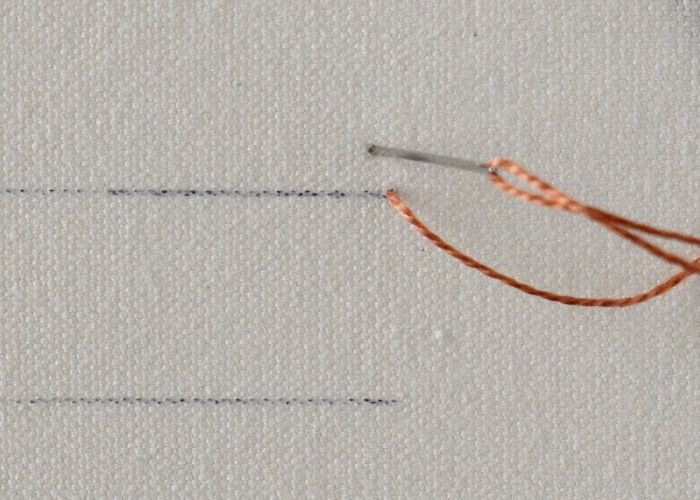
- Bring the needle up
Take it up below the line at an equal distance from the mark.
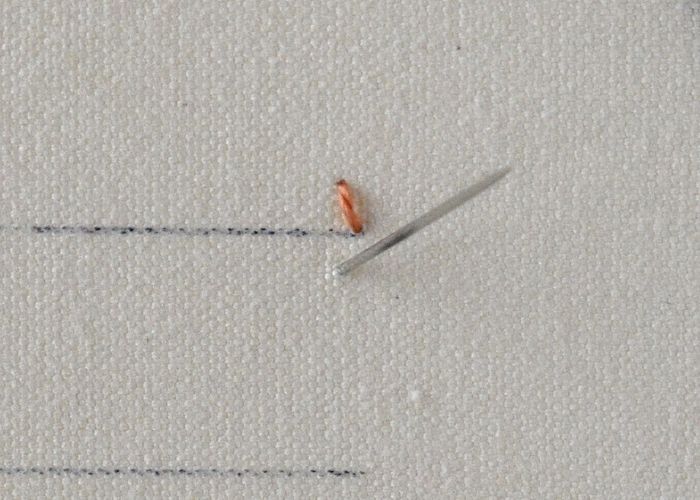
- Make the first knot
Pass the needle under the small diagonal stitch but above the working thread. Move from left to right. Pull the thread and gently tighten the knot.
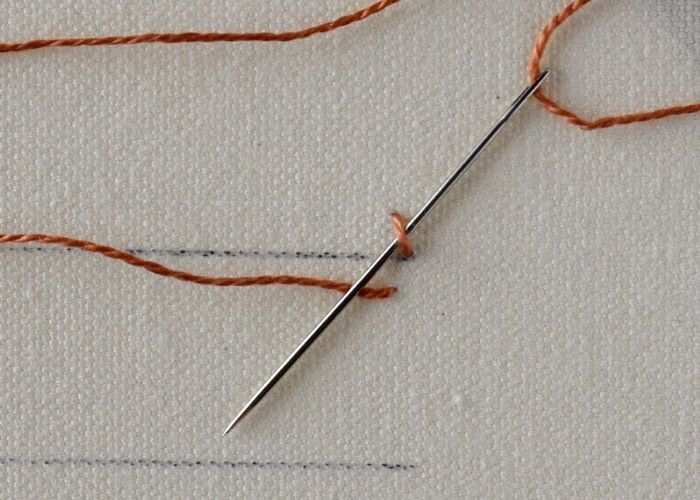
- Make the second knot
One more time, pass the needle under the small diagonal stitch and above the working thread. The second knot is formed above the first one. Pull the thread and gently tighten the knot.

- Start the second stitch
Take the needle down above the marking line on the left from the first stitch.
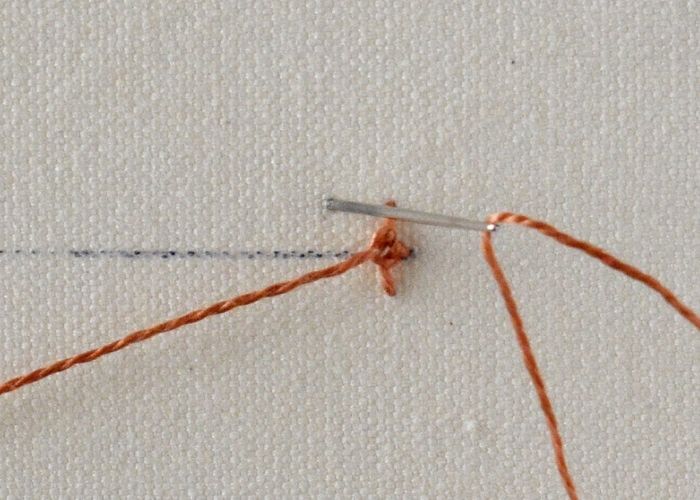
- Start knotting
Push the needle to the surface under the line and pass it under the diagonal stitch. Repeat all the steps to form two knots.
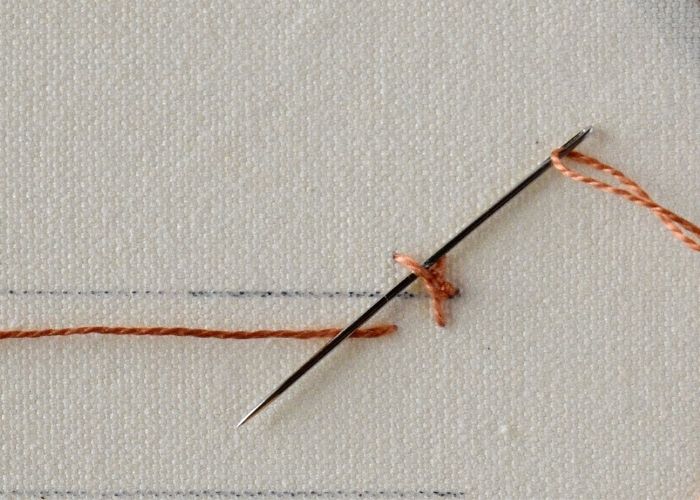
- Finish the line
When the entire embroidery is done, take the needle down on the marked line and secure the thread on the back.

Basque Knot Video tutorial
Tools and materials I used for this sampler
Disclaimer. To cover the cost of creating free embroidery patterns and video tutorials for this blog, I do sometimes link to products. Please assume these links are affiliate links. If you choose to buy through my links then THANK YOU – it will make it possible for me to keep doing this.
What’s next?
If you’re in the mood to explore more hand embroidery stitches, check out the Stitches and Techniques page for the list of other fantastic stitches available on my blog. From timeless classics to modern twists, a whole world of stitches is waiting for you to explore and master. So, grab your hoop and needle, and let’s stitch our way to creative bliss!
Don’t miss a thing!
Follow me on YouTube, Instagram, Facebook, and Pinterest. Or why not subscribe to Practical Embroidery newsletter and get embroidery tips straight to your inbox every few weeks?
Need More Guidance?
The top 10 hand embroidery stitches to learn is a free online course created for beginners.
